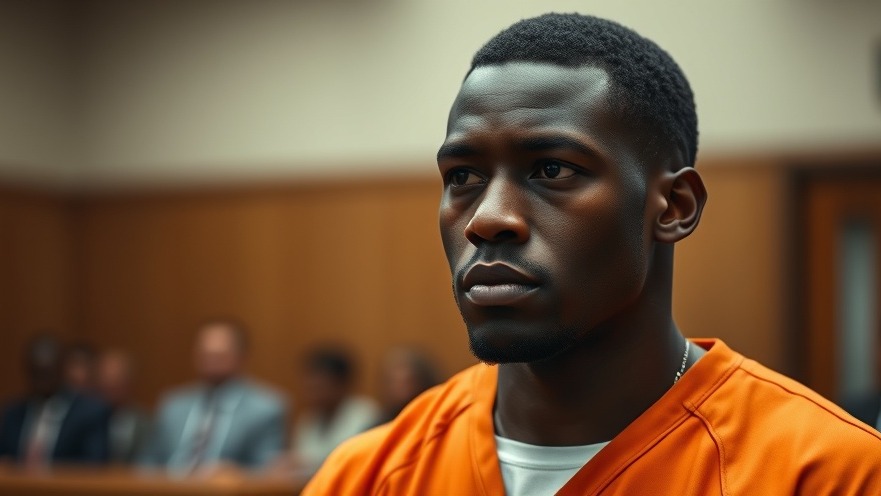
A Troubling Medical Incident: R. Kelly's Hospitalization
R. Kelly, the disgraced R&B singer, is once again making headlines, but this time it is under alarming circumstances. Recently hospitalized following an alleged overdose, his legal team claims that the situation reveals a deeper, troubling narrative of neglect and potential threats to his safety in federal custody. According to lawyer Beau Brindley, prison officials administered an excessive amount of medication that could have been fatal and subsequently removed Kelly from a hospital against medical advice.
Claims of a Murder Plot: A Disturbing Allegation
Brindley has not been shy in laying out his concerns, suggesting a potential murder plot orchestrated by prison personnel. These accusations represent a serious breach of trust regarding the safety of inmates. This isn't an isolated claim; Brindley noted a prior instance in June when he alleged prison officials recruited a white supremacist to harm Kelly. Such alarming statements raise questions about the safety protocols in place within the Bureau of Prisons, especially for high-profile inmates.
Health Complications on the Rise
During his time in solitary confinement, Kelly reportedly faced health concerns that worsened without proper medical attention. His lawyers indicate that he was denied necessary medications and emergency care for existing conditions, including blood clots—issues well-documented in his medical history. Forced removal from the hospital came after doctors detected multiple clots, leaving many to wonder about the ethical implications of his treatment.
Public Reactions and Media Coverage
Responses from the public and media have highlighted mixed sentiments regarding Kelly's situation. Supporters often voice concerns over the treatment of marginalized individuals in the prison system, echoing systemic failures to protect inmates adequately. On the contrary, many who view Kelly through the lens of his controversial past remain less sympathetic, emphasizing the legal ramifications of his actions.
What’s Next for R. Kelly?
As Kelly's legal team presses for a transfer to home detention, the clock is ticking on the judge's decisions impacting his future. If his claims hold water, it could lead to significant scrutiny on the Bureau of Prisons' overall approach to inmate welfare. The ripple effects of this case may not only influence Kelly but could prompt broader discussions about prison reform and inmate safety. Advocates argue that understanding Kelly's plight can reveal essential truths about advocacy and the rights of every inmate.
Exploring Broader Themes of Injustice
The contradictions within the prison system raise questions about why certain individuals are afforded better treatment than others. Would Kelly's image change public perception if the media continuously portrayed him only as a victim of a flawed system? Many are left reflecting on how easily the circumstances can impact societal perspective and eventually influence legislation. The moral dilemmas surrounding this case are substantial, ultimately igniting a dialogue about the ethics of punishment versus rehabilitation.
What It Means for Entertainment Culture
R. Kelly's incarceration and the subsequent developments highlight the intersection of crime, punishment, and celebrity in modern culture. The entertainment landscape has seen shifts following the revelations of Kelly's past, prompting conversations about accountability, fame, and the consequences of one's actions. Whether regarded through an entertainment or human rights lens, Kelly’s story reveals ongoing struggles with diversity in judicial treatment, providing a critical case study in the entertainment world.
As this case unfolds, it’s essential for audiences to contemplate the wider implications not just for Kelly but for the entire justice system. The lessons learned could very well shape policies that protect vulnerable individuals behind bars, providing a lifeline for change.
To engage with this complex and evolving narrative, consider checking out entertainment events happening in your area. Whether it’s a thought-provoking film festival, a lively local concert, or an intimate theater performance, exploring these cultural arenas can help foster conversations on social justice and individual rights, both within the justice system and beyond.
 Add Element
Add Element  Add Row
Add Row 



 Add Row
Add Row  Add
Add 


Write A Comment